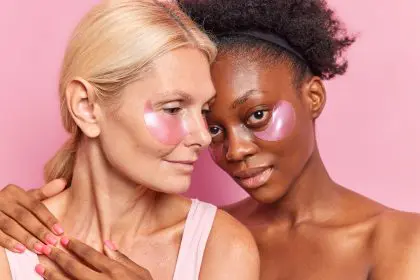winterizing your skin
bodywell
 |
Now that winter is here, there are measures you can take to protect your skin from dryness, rash and itching. How often you bathe, water temperature, and the type of soap and moisturizers you use are important.
The skin is the largest body organ. It controls body temperature, prevents water loss from the body, and serves as a barrier to infections.
Moisture seeps in and out of skin depending on humidity. When the relative humidity is higher than the skin’s moisture content, skin will absorb moisture from the air. But, when the relative humidity is lower than the skin’s moisture content, skin loses moisture to the air. Dry heat dries the air and subsequently the skin. Lowering the thermostat and the use of humidifiers can help alleviate this problem.
How often you bathe in the winter is also important to preventing dry skin. Bathing with hot water and soap removes natural oils and hydrating substances from the skin. If you suffer with dry skin, bathing or showering more than once a day is not recommended. If your skin is extremely dry you should bathe even less than daily. Bathing with a bath oil is preferred to showering. Use soap formulated for dry skin and heavily lather only the odor producing areas. Dove, Caress and Tone are the soaps recommended most.
Choose an appropriate moisturizer for dry skin. The better moisturizers will usually contain glycerin or a plant-based oil. Petroleum and mineral oil are coating agents and do not moisturize, they only help to seal in moisture. Glycerin and most plant-based oils absorb moisture from the air. Olive oil is a good plant oil example. Pure cocoa and shea butters are plant-based products that are also useful. Moisturize immediately after bathing while the skin is still moist.
If you itch a lot or develop a rash in the winter, consult a dermatologist. Individuals who have eczema may have skin that is dryer than normal. Young children and senior citizens also have dryer skin.
In summary, if you have dry skin, bathe less often, use a moisturizing soap and a good moisturizer.
– Dr Wilborn is an associate clinical professor of dermatology at Emory University School of Medicine in Atlanta. Visit DPL Web site at www.dplproducts.com








